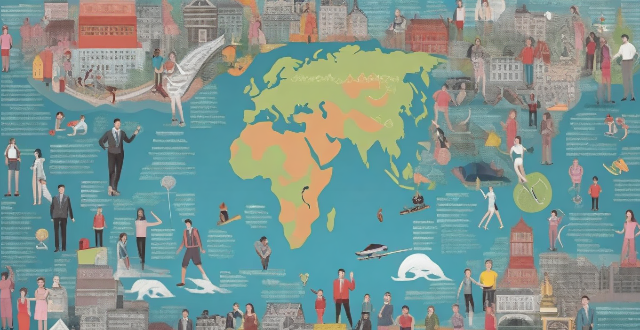The article discusses how sports and multiculturalism have influenced global athletic events, making them more diverse, inclusive, and engaging. It highlights the increased diversity and inclusivity, cultural exchange and celebration, promotion of gender equality, addressing social issues, and economic benefits for host countries. The article concludes by stating that these events continue to evolve and adapt to an increasingly interconnected world.

The Influence of Sports and Multiculturalism on Global Athletic Events
Sports have always been a unifying force, bringing people together from different cultures and backgrounds. The integration of sports and multiculturalism has had a significant impact on global athletic events, making them more inclusive, diverse, and engaging for audiences worldwide. In this article, we will explore the various ways in which sports and multiculturalism have influenced global athletic events.
1. Increased Diversity and Inclusivity
One of the most obvious ways in which sports and multiculturalism have influenced global athletic events is by increasing diversity and inclusivity. Athletes from all over the world now participate in major sporting events, such as the Olympics, World Cup, and Commonwealth Games. This has not only provided opportunities for athletes to showcase their talents on a global stage but also allowed fans to witness the unique skills and styles of athletes from different cultures.
Key Points:
- More countries are represented in global athletic events than ever before.
- Fans can enjoy a wider range of sports and styles due to increased diversity.
- Athletes from underrepresented groups have gained greater visibility and recognition.
2. Cultural Exchange and Celebration
Global athletic events have become platforms for cultural exchange and celebration, with each host country showcasing its unique traditions, cuisine, music, and dance during the event. This not only adds to the overall experience of the event but also promotes cross-cultural understanding and appreciation among participants and fans alike.
Key Points:
- Host countries often incorporate their cultural elements into opening and closing ceremonies.
- Athletes learn about different cultures through interactions with their peers and fans.
- Fans have the opportunity to sample local cuisine and participate in cultural activities during the event.
3. Promotion of Gender Equality
The integration of sports and multiculturalism has played a crucial role in promoting gender equality in global athletic events. Women's participation in sports has significantly increased over the years, with many events now featuring equal prize money for both men and women competitors. Additionally, organizations like FIFA have implemented policies to ensure that women's soccer receives equal treatment and resources as men's soccer.
Key Points:
- Women's participation in global athletic events has increased significantly.
- Many events now offer equal prize money for both men and women competitors.
- Organizations are implementing policies to promote gender equality in sports.
4. Addressing Social Issues
Global athletic events have become platforms for addressing social issues, such as racism, sexism, homophobia, and other forms of discrimination. Athletes and organizers use these events to raise awareness about these issues and advocate for change. For example, many professional athletes have used their platform to speak out against police brutality and racial inequality, while some events have incorporated LGBTQ+ pride parades and celebrations into their programming.
Key Points:
- Athletes and organizers use global athletic events to raise awareness about social issues.
- These events provide opportunities for advocacy and activism on a global scale.
- Incorporating social causes into sporting events helps promote positive change in society.
5. Economic Benefits for Host Countries
The integration of sports and multiculturalism has also had a significant impact on the economic benefits for host countries. Major sporting events attract millions of visitors, generating revenue through tourism, hospitality, and related industries. Additionally, these events create job opportunities and stimulate economic growth in the host region.
Key Points:
- Major sporting events generate revenue through tourism and related industries.
- These events create job opportunities and stimulate economic growth in host regions.
- Host countries benefit from increased international exposure and prestige associated with hosting major sporting events.
In conclusion, the integration of sports and multiculturalism has had a profound impact on global athletic events, making them more diverse, inclusive, and engaging for audiences worldwide. By promoting cross-cultural understanding, celebrating diversity, addressing social issues, and providing economic benefits for host countries, these events continue to evolve and adapt to an increasingly interconnected world.